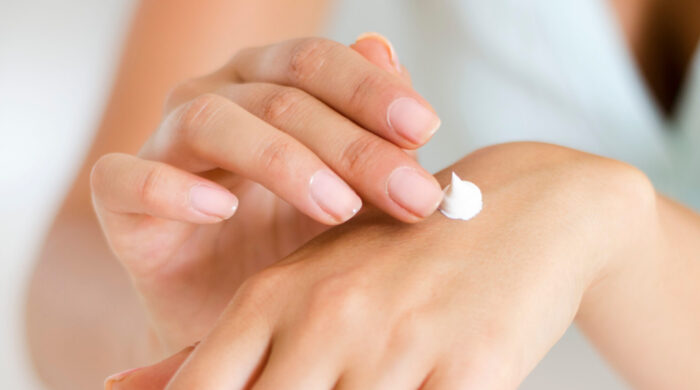Your skin never takes a break from protecting your body, but in the winter months it works especially hard to preserve moisture and maintain elasticity.
In this post, we’ll discuss why it’s so important to pay extra attention to our winter skin, review some of the most common troubles that can surface for skin in cold and dry weather, and provide tips on how to keep your skin healthy throughout the season.
The Importance of Skincare During Winter
As temperatures drop, winter skin care becomes vital. Prolonged exposure to cold air often results in dry and flaky skin or can trigger other issues.
Without the use of additional moisturizers and proper protection from the elements, these skin problems can become itchy or painful, and have a negative effect on your appearance.
Common Winter Skin Issues
There are several skin issues that can result from exposure to typical winter weather. Here are the most common:
Xerosis (Dry Skin)
This is what some refer to as ‘winter itch,’ which is essentially dry skin as a result of the winter season. This can manifest in skin flaking off, red or pink discoloration on patches of skin or areas so raw that they become painful.
Chapped Lips
This usually shows as flaky, cracking skin on the surface of the lips as a result of excessive dryness.
Cold Urticaria
Cold urticaria, which can show up shortly after exposure to cold, creates red welts and hives all over the body. Symptoms may also include lightheadedness, a swelling in the throat and a burning sensation on the surface of the skin. It is usually most prominent in young adults.
Eczema
Though eczema is a chronic dry skin condition for those who have it, winter weather is a common trigger for flare-ups.
Tips for Keeping Your Skin Happy During Winter
Though you can’t control the colder weather or the amount of time you may exposed to it, you can make sure you’re taking steps to prepare and protect your skin while it’s here. Use these helpful tips as a guideline for self-care.
Wear Appropriate Clothing
If you know you’re going outside, wear coats, gloves, scarves, earmuffs, and other items to place a barrier between your skin and the elements. Though it may not be practical to cover every inch, you can certainly cover as much as possible. In addition, choose clothing with fabrics that aren’t scratchy or irritating to the skin.
Carry Lip Balm
It may seem obvious, but a stick of lip balm is an inexpensive item to have on hand that can provide protection and relief almost instantly. There are also sugar scrubs and lip exfoliant sticks that can help eliminate dry skin that’s flaking on the lips and lip masks that you can apply before sleeping for overnight moisture.
Take Brief Lukewarm Showers and Baths
Though it’s undeniably tempting to bathe in piping hot water, especially after you’ve just come in from the cold, it’s much better for your skin to dial the temperature down so that you don’t risk irritation. You’ll also want to limit your time in the water so as not to contribute to additional dryness.
Use Gentle Soaps and Shower Gels
When cleansing, look for products that are fragrance free and gentle for the skin vs. those with harsher ingredients or scrubs. It’s also good to use those that have a built-in moisturizing ingredient.
Moisturize Post-cleansing with Cream
After you bathe, pat your skin dry and moisturize immediately with a rich cream or oil-based moisturizer. These will be more effective than lotions to keep moisture sealed in and your skin feeling as smooth as possible. In addition, when outside you should consider a moisturizer with an effective sunblock of SPF 30 or stronger (even if the weather is cloudy).
Stay Hydrated
Drinking an ample amount of water is something we think about regularly in the warmer months, but it’s just as important to stay hydrated in the cold weather, even if we’re not as thirsty. Consuming water helps keep your skin moist on the inside.
Use a Humidifier
If the air in your home is especially dry, invest in a humidifier to help keep skin supple. As a bonus, it may also make your home feel warmer and ease symptoms of allergies and common colds.
Talk to a Health Provider
Western Washington Medical Group’s Family Practice providers are here to help. Reach out to one of our primary care providers for assistance with developing the best winter skincare plan for you.
